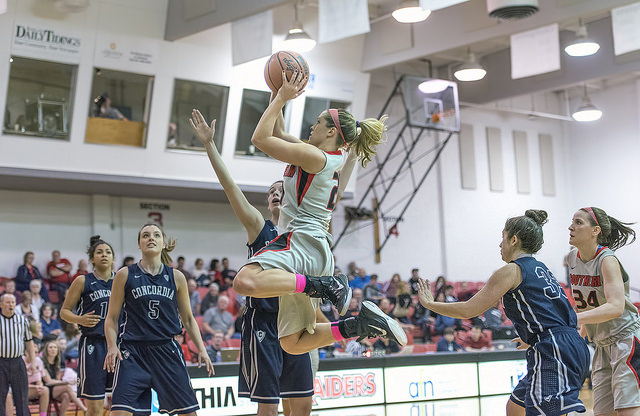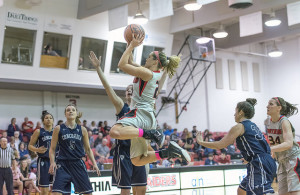By Kassie Lockhart
It’s mid-March and if you’re a sports fanatic like myself then you know what that means. March Madness is here! Tuesday marked the start of the tradition of filling out brackets, staying up late, crafting excuses to miss work or get off early and hoping your team is the one cutting down the nets in April. It’s three glorious weeks of basketball, basketball and more basketball.
On the women’s side of the roundball, UConn is projected to win their fifth championship in a row. The team enters the tournament riding a 107-game win streak. Yes, 107. Right now, in the world of women’s college basketball there is UConn and everyone else fighting for second. Unfortunately, this creates a disdain for some who would prefer to see things more evenly balanced as you see in men’s college basketball. The men haven’t had a back to back champion since 2007.
As UConn’s hold on the game increases, the disparities between the women and the men are on full display. When UConn was approaching the coveted 100-game win streak, there were many analysts who expressed contempt over the feat. They said it watered down the game and that it made women’s basketball hard to watch. They also said it wasn’t good for the sport. That’s an interesting opinion. Men’s teams go on streaks all the time and they’re always celebrated for doing so. I wasn’t around in the 1970s but I have a hard time believing UCLA heard a lot of negative talk when they went on their 88-game win streak.
For all the strides that have made over the past few decades in women’s basketball, the amount of hype and publicity surrounding the sport is still lagging behind the men. None of this is surprising. All across our country, women’s sports are overshadowed by men’s. There is an abundance of men coaching women’s teams but according to the Feminist Majority Foundation, t >>here are only 2% of women coaching men’s teams . Men receive primetime exposure on premiere networks while women are often regulated to cable outlets you have to search your guide for. During the season, the men are featured every Monday night on ESPN. Coaches of men’s teams receive much higher pay than coaches of women’s teams. UConn women’s head coach, Geno Auriemma has won 11 national titles. He makes a hefty $2 million a year. The UConn men’s head coach, Kevin Ollie, has one national title on his resume and gets paid one million more than Auriemma.
Exposure for women’s college basketball is a constant uphill battle. While the game has garnered more respect, it still has a long way to go to reach the bar that has been established by the men. Women supporting women has always been a driving force but in the world of sports, men are typically the decision makers. They’re typically the athletic directors and presidents of the networks. In order us to achieve the goal of more exposure, men have to be on board with ensuring this happens. If they aren’t then we need to ask what type of message that sends to young girls. Do we really want them believing they are inferior or they aren’t as good as their counterparts? No, we have to continue to support, encourage and inspire those coming behind us. It’s up to us, all of us, to carve a path they can follow to maximize their greatness. Let’s help them promote them on and off the court!


There are no comments
Add yours